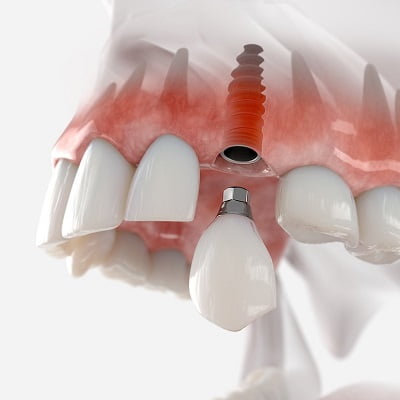
In recent years, technology has revolutionized various industries, and the field of dentistry is no exception. One area where technology has made significant advancements is dental implantology in Islamabad.
Dental implants are artificial tooth roots placed into the jawbone to support a replacement tooth or bridge. They provide a long-lasting solution for patients with missing teeth and have become increasingly popular due to their numerous benefits.
Let’s explore the role of technology in dental implantology, the advancements it has brought, and the benefits it offers to both patients and dental professionals. Keep reading!
Digital Imaging and Planning:
Making use of digital imaging and planning tools is one of the most significant developments in dental implantology. Digital scanners that provide a precise 3D image of the patient’s mouth have replaced conventional techniques of taking dental impressions.
With the help of this technology, dentists may more precisely plan the implant operation and examine the patient’s anatomy. Digital imaging likewise reduces the need for physical models and improves patient and dental team communication.
Guided Implant Surgery:
Computer-directed systems are used during guided implant surgery to place dental implants. Dental surgeons can develop a surgical guide that defines the ideal placement and angle for each implant with the help of computerized imaging and planning.
The guide makes sure the implants are positioned precisely as intended during the procedure, which improves outcomes and lowers the chance of problems. The use of guided implant surgery enables less invasive procedures, quicker recovery times, and more patient comfort.
Digital Impressions and 3D Printing:
Traditional impression materials, which were unwieldy and painful, have been replaced with digital impressions. The teeth and gums of the patient are captured in great detail using intraoral scanners, allowing for the development of virtual models.
Using 3D printing technology, these digital models are then used to design and make surgical guides, temporary restorations, and even permanent prostheses. This streamlined process saves time, lowers mistakes, and gives the patient a more pleasant experience.
Dental Technology Advancement:
The advancements in technology have brought several benefits to both patients and dental professionals in the field of dental implantology:
Improved Accuracy and Predictability:
Technology has significantly improved the accuracy and predictability of dental implant procedures. The use of digital imaging, guided surgery, and computer-aided design allows for precise treatment planning and execution. This leads to better outcomes, increased success rates, and improved patient satisfaction.
Minimally Invasive Techniques:
Technological advancements have made it possible to perform implant surgeries using minimally invasive techniques. Guided implant surgery, for example, enables dentists to place implants with smaller incisions, resulting in less post-operative discomfort, faster healing, and reduced recovery time for patients.
Enhanced Communication and Patient Education:
Digital imaging and planning tools facilitate better communication between dental professionals and patients. Dentists can show patients the virtual representation of their proposed treatment, helping them understand the procedure and set realistic expectations. This improved communication leads to higher patient satisfaction and increased treatment acceptance rates.
Faster Turnaround Times:
Digital workflows have significantly reduced the time required for dental restorations. With the ability to design and manufacture restorations in-house, dentists can provide same-day crowns and bridges, eliminating the need for multiple appointments and temporary restorations.
Customization and Aesthetics:
The use of digital technologies allows for highly customized implant restorations. Dentists can precisely match the shape, size, and color of the replacement tooth to the patient’s natural teeth, resulting in a seamless and aesthetically pleasing outcome. The ability to digitally design and fabricate restorations also opens up possibilities for complex implant-supported prosthetics.
All Summed Up!
Therefore, technology has played a transformative role in dental implantology, revolutionizing the way dental professionals plan and execute implant procedures. As technology continues to evolve, we can expect further advancements that will push the boundaries of what is possible, leading to even better outcomes and experiences for patients seeking dental implants.
If you want to get any dental work from reputable and expert dental surgeons, feel free to visit SKN Cosmetic Clinic Islamabad. Here you will get all types of dental procedures and successful performances.







Book your Appointment